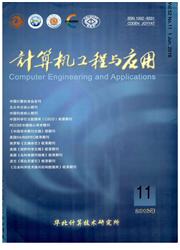

 中文摘要:
中文摘要:
近年来空间colocation模式挖掘由传统数据扩展到了不确定数据、模糊数据领域,但在模糊数据层面上,只有少量关于对象模糊的研究,而对于模糊空间这一论域的研究还是空白。基于经典的colocation模式挖掘的理论,针对性地提出了面向模糊空间的colocation模式挖掘及相关定义,增加了模糊数据领域内研究的深度和广度,并根据模糊数学理论结合空间colocation挖掘的特点,在模糊距离隶属度函数未知的情况下建立了具有较好适用性的FS基本算法。该算法一改以往在经典数据集上需要验证”团实例”的复杂做法,大大提高了算法性能。在已知模糊距离隶属度函数时,给出一个同时适用于经典数据以及模糊数据的增加数据完整性的通用方法;引进模糊方位,给出完全有别于以往的FS补充算法,增加了数据的完整性,并能实现模糊数据空间向经典数据空间的转换。
 英文摘要:
英文摘要:
The spatial colocation pattern mining in spatial data sets has been extended to the spatially uncertain data sets and spatially fuzzy data sets in recent years. However, for mining from spatially fuzzy data sets, it is studied only about spatially fuzzy objects rather than fuzzy spatial. According to the theory of the spatial colocation pattern mining in tradi-tional spatial data sets, some concepts of spatial colocation pattern mining in fuzzy spatial are defined. An FS basic algo-rithm is proposed while the function of membership degree is unknown, and as it does not need to check clique instances one by one, the FS basic algorithm works well. Meanwhile, a common method to increase the completeness of spatially data sets is introduced. Finally, the paper proposes an improved algorithm of FS to make spatially fuzzy data sets more integral, and then to transform spatially fuzzy data sets into spatially classic data sets.
 同期刊论文项目
同期刊论文项目
 同项目期刊论文
同项目期刊论文
 期刊信息
期刊信息
